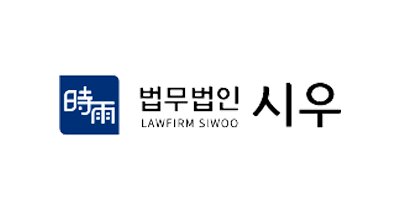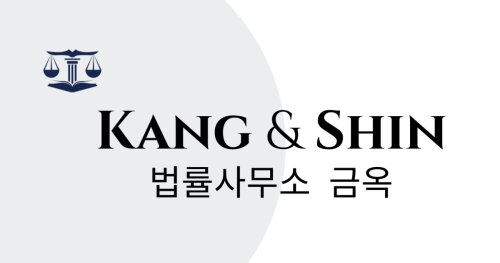Best International Trade Law Lawyers in South Korea
Share your needs with us, get contacted by law firms.
Free. Takes 2 min.
Or refine your search by selecting a city:
List of the best lawyers in South Korea
About International Trade Law in South Korea
International Trade Law in South Korea governs the import and export of goods and services, ensuring compliance with international agreements and domestic regulations. South Korea, as a member of the World Trade Organization (WTO), aligns its laws with international standards, facilitating trade with countries around the globe. The country has a robust legal framework to regulate trade, including customs procedures, tariffs, trade remedies, and dispute resolution mechanisms.
Why You May Need a Lawyer
Individuals and businesses may require legal advice in International Trade Law for a variety of reasons. Common situations include navigating complex trade agreements, resolving cross-border disputes, ensuring compliance with local and international trade regulations, protecting intellectual property rights, and understanding export-import controls. A lawyer specializing in this field can provide guidance on these issues and help mitigate legal risks associated with international trade.
Local Laws Overview
Key aspects of South Korean law relevant to international trade include customs regulations, free trade agreements (FTAs), trade sanctions, and anti-dumping laws. The Korea Customs Service regulates the entry and exit of goods, imposing duties and taxes where applicable. South Korea has entered into multiple FTAs with countries worldwide, which influence the tariff rates and trade rules. Additionally, South Korean laws address unfair trade practices and adherence to international standards for product safety and labeling.
Frequently Asked Questions
What is the role of the Korea Customs Service in international trade?
The Korea Customs Service is responsible for enforcing customs laws, collecting duties, preventing smuggling, and protecting national economic interests through control over the movement of goods across borders.
What are Free Trade Agreements (FTAs), and how do they affect trade?
FTAs are treaties between two or more countries to reduce tariffs and trade barriers, facilitating easier market access. They impact pricing, market competitiveness, and regulatory compliance for businesses operating internationally.
How can a lawyer assist with export-import compliance?
A lawyer can help interpret complex regulations, prepare necessary documentation, and ensure that businesses meet all legal requirements for exporting or importing goods to avoid penalties.
What are anti-dumping laws?
Anti-dumping laws protect domestic industries by imposing additional tariffs on foreign imports deemed to be priced below fair market value. These laws guard against unfair trade practices.
How does South Korea enforce trade sanctions?
South Korea enforces trade sanctions in accordance with international laws and United Nations resolutions, restricting trade with designated countries or entities to uphold national security and foreign policy objectives.
What steps should I take to resolve an international trade dispute?
International trade disputes can often be resolved through negotiation, mediation, arbitration, or litigation. Consulting a lawyer specializing in international trade law can help determine the best course of action based on the nature of the dispute.
Do I need to comply with product safety standards?
Yes, compliance with both domestic and international product safety standards is essential to ensure consumer safety and avoid legal penalties while engaging in trade activities.
Are there special rules for exporting technology from South Korea?
Exporting technology and certain sensitive products may require special permits and compliance with export control laws to prevent unauthorized access to critical technologies.
What is the importance of intellectual property protection in international trade?
Protecting intellectual property (IP) is crucial in international trade to prevent unauthorized use and ensure the benefits of innovation and creativity are retained by rightful owners.
Can an international trade lawyer help with market entry strategies?
Yes, they can provide valuable insights into regulatory requirements, competition laws, and strategic alliances, helping businesses successfully enter and navigate foreign markets.
Additional Resources
For further information, consider consulting the following South Korean governmental bodies and organizations:
- Korea Customs Service
- Ministry of Trade, Industry and Energy
- Korean International Trade Association
- World Trade Organization (WTO)
- Local law firms specializing in international trade law
Next Steps
If you require legal assistance, the first step is to research and select a qualified lawyer specializing in international trade law in South Korea. Consider scheduling a consultation to discuss your specific legal needs and receive tailored advice. Prepare all necessary documentation and questions to ensure an efficient and productive meeting. Engaging with professionals can help safeguard your interests and navigate the complexities of international trade law effectively.
Lawzana helps you find the best lawyers and law firms in South Korea through a curated and pre-screened list of qualified legal professionals. Our platform offers rankings and detailed profiles of attorneys and law firms, allowing you to compare based on practice areas, including International Trade Law, experience, and client feedback.
Each profile includes a description of the firm's areas of practice, client reviews, team members and partners, year of establishment, spoken languages, office locations, contact information, social media presence, and any published articles or resources. Most firms on our platform speak English and are experienced in both local and international legal matters.
Get a quote from top-rated law firms in South Korea — quickly, securely, and without unnecessary hassle.
Disclaimer:
The information provided on this page is for general informational purposes only and does not constitute legal advice. While we strive to ensure the accuracy and relevance of the content, legal information may change over time, and interpretations of the law can vary. You should always consult with a qualified legal professional for advice specific to your situation.
We disclaim all liability for actions taken or not taken based on the content of this page. If you believe any information is incorrect or outdated, please contact us, and we will review and update it where appropriate.
Browse international trade law law firms by city in South Korea
Refine your search by selecting a city.
















